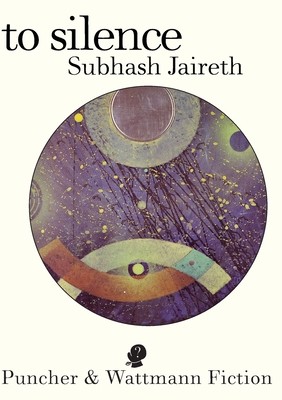
- We will send in 10–14 business days.
- Author: Subhash Jaireth
- Publisher: Puncher & Wattmann
- Year: 2011
- Pages: 111
- ISBN-10: 1921450428
- ISBN-13: 9781921450426
- Format: 14.8 x 21 x 0.7 cm, minkšti viršeliai
- Language: English
- SAVE -10% with code: EXTRA
Reviews
Description
Don't be deceived by this tardis of a book, its three small monologues contain multitudes. Through the gently detailed lives of its subjects whole civilisations emerge: the fifteenth-century India of the dying and illiterate poet, Kabir; the Stalinist Russia of Chekhov's younger sister, Maria; and the early seventeenth-century, Inquisition-ravaged Italy of the Calabrian theologian and poet, Tommaso Campanella. The characters, at the end of their lives, are haunted by their pasts, and in prose of simple, meditative, elegiac beauty, Jaireth suggests that this nostalgia is neither a longing for a lost place or a lost time, but is, rather, a homelessness in time - his own included - an uneasiness that has driven all that they have and have not done. The book is ultimately about the mystery of creation itself, the silence from which all things come and to which they inevitably return. - John Hughes.
EXTRA 10 % discount with code: EXTRA
The promotion ends in 21d.23:41:46
The discount code is valid when purchasing from 10 €. Discounts do not stack.
- Author: Subhash Jaireth
- Publisher: Puncher & Wattmann
- Year: 2011
- Pages: 111
- ISBN-10: 1921450428
- ISBN-13: 9781921450426
- Format: 14.8 x 21 x 0.7 cm, minkšti viršeliai
- Language: English English
Don't be deceived by this tardis of a book, its three small monologues contain multitudes. Through the gently detailed lives of its subjects whole civilisations emerge: the fifteenth-century India of the dying and illiterate poet, Kabir; the Stalinist Russia of Chekhov's younger sister, Maria; and the early seventeenth-century, Inquisition-ravaged Italy of the Calabrian theologian and poet, Tommaso Campanella. The characters, at the end of their lives, are haunted by their pasts, and in prose of simple, meditative, elegiac beauty, Jaireth suggests that this nostalgia is neither a longing for a lost place or a lost time, but is, rather, a homelessness in time - his own included - an uneasiness that has driven all that they have and have not done. The book is ultimately about the mystery of creation itself, the silence from which all things come and to which they inevitably return. - John Hughes.


Reviews